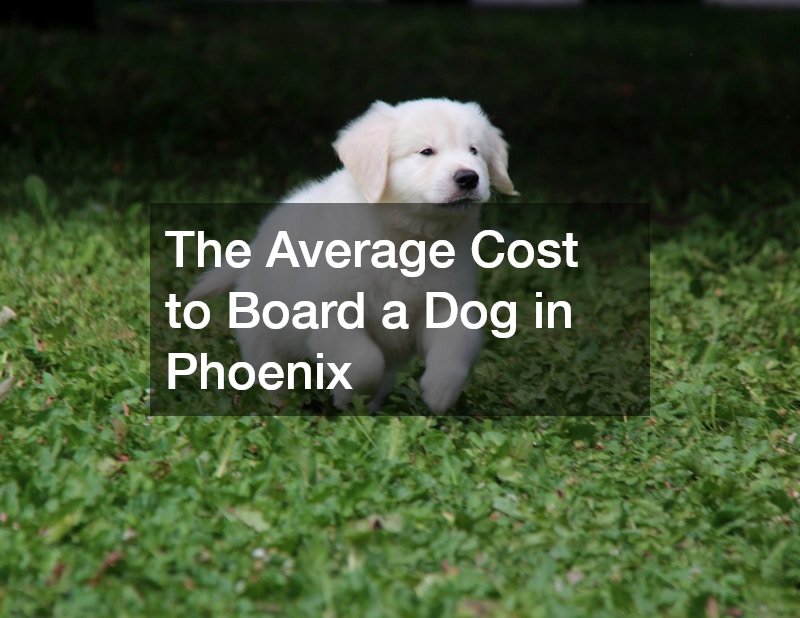Boarding your dog can be a necessary arrangement when traveling, dealing with emergencies, or simply needing a break. Phoenix, a bustling city with a variety of dog boarding options, offers services that cater to different needs and budgets. Understanding the average cost to board a dog in Phoenix involves considering various factors such as the type of boarding facility, additional services, the size and breed of your dog, and the duration of the stay. Here, we’ll delve into these aspects to provide a comprehensive overview of what you can expect to pay for dog boarding in Phoenix.
Types of Boarding Facilities
Traditional Kennels
Traditional kennels are the most common type of dog boarding facility. These establishments provide individual kennels or runs for each dog, ensuring they have a secure place to sleep and eat. The average cost for boarding a dog in a traditional kennel in Phoenix ranges from $25 to $45 per night. This cost typically includes basic care such as feeding, cleaning, and exercise.
Dog Hotels and Resorts
For a more luxurious experience, dog hotels and resorts offer premium accommodations. These facilities often feature larger living spaces, comfortable bedding, climate control, and additional amenities such as playtime, grooming, and even spa services. The average cost for boarding at a dog hotel or resort in Phoenix can range from $50 to $100 per night, depending on the level of luxury and services provided.
In-Home Boarding
In-home boarding involves leaving your dog with a professional pet sitter who cares for them in their own home. This option can be more comforting for dogs who prefer a home-like environment. The average cost for in-home boarding in Phoenix ranges from $35 to $60 per night. This price may vary based on the pet sitter’s experience, the number of dogs they board, and any additional services offered.
Veterinary Boarding
Some veterinary clinics in Phoenix offer boarding services, which can be a great option if your dog has special medical needs. These facilities provide medical supervision and care, ensuring your dog’s health is closely monitored. The average cost for veterinary boarding ranges from $30 to $60 per night. This option might be slightly more expensive if specialized medical care or treatments are required during the stay.
Factors Influencing Cost
Size and Breed of the Dog
The size and breed of your dog can influence the cost of boarding. Larger dogs generally require more space, food, and attention, leading to higher boarding fees. Specific breeds with unique care requirements or those prone to health issues might also incur additional costs. On average, expect to pay an extra $5 to $15 per night for larger breeds or dogs with special needs.
Duration of Stay
The length of your dog’s stay will impact the overall cost. Many boarding facilities in Phoenix offer discounts for extended stays. For example, while the nightly rate might be $40 for a short stay, the price could drop to $35 per night for stays longer than a week. Monthly boarding rates can also be more economical, with some facilities offering significant discounts for long-term stays.
Additional Services
Additional services such as grooming, training, extra playtime, or special dietary requirements can add to the overall cost of boarding. Grooming services typically range from $30 to $80, depending on the size and breed of the dog. Training sessions can cost anywhere from $40 to $100 per session. If your dog requires a special diet, there may be an additional fee of $5 to $10 per day for preparing and providing the specific food.
Season and Demand
The cost of boarding can also fluctuate based on the season and demand. During peak travel times, such as holidays and summer vacations, boarding facilities may charge higher rates due to increased demand. It’s advisable to book well in advance during these periods to secure a spot and possibly lock in lower rates.
Finding the Best Fit
When choosing a boarding facility, it’s essential to consider your dog’s specific needs and temperament. Visiting potential boarding facilities, reading reviews, and speaking with the staff can provide valuable insights into the quality of care your dog will receive. Additionally, asking about the facility’s policies on emergencies, vaccination requirements, and daily routines can help ensure a good fit for your pet.
.









